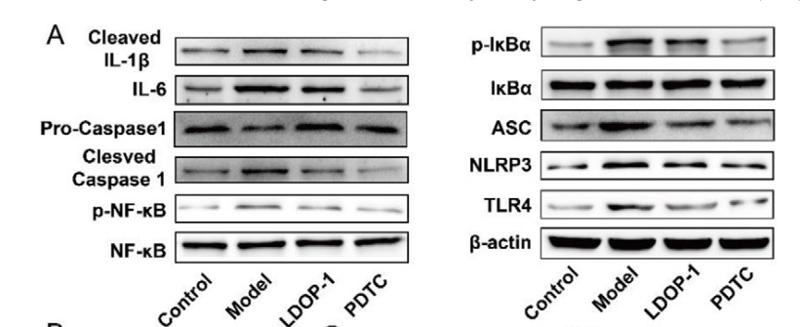| 产品: | FGA 抗体 |
| 货号: | DF7895 |
| 描述: | Rabbit polyclonal antibody to FGA |
| 应用: | WB IHC |
| 文献验证: | WB |
| 反应: | Human, Rat |
| 预测: | Chicken, Xenopus |
| 分子量: | 95 kDa; 95kD(Calculated). |
| 蛋白号: | P02671 |
| RRID: | AB_2841316 |
产品描述
*The optimal dilutions should be determined by the end user.
*Tips:
WB: 适用于变性蛋白样本的免疫印迹检测. IHC: 适用于组织样本的石蜡(IHC-p)或冰冻(IHC-f)切片样本的免疫组化/荧光检测. IF/ICC: 适用于细胞样本的荧光检测. ELISA(peptide): 适用于抗原肽的ELISA检测.
引用格式: Affinity Biosciences Cat# DF7895, RRID:AB_2841316.
展开/折叠
Ac1873; Fba5e; FGA; Fib; Fib2; FIBA_HUMAN; Fibrinogen alpha chain; Fibrinogen, A alpha polypeptide; Fibrinogen--alpha polypeptide chain; Fibrinopeptide A;
抗原和靶标
- P02671 FIBA_HUMAN:
- Protein BLAST With
- NCBI/
- ExPASy/
- Uniprot
MFSMRIVCLVLSVVGTAWTADSGEGDFLAEGGGVRGPRVVERHQSACKDSDWPFCSDEDWNYKCPSGCRMKGLIDEVNQDFTNRINKLKNSLFEYQKNNKDSHSLTTNIMEILRGDFSSANNRDNTYNRVSEDLRSRIEVLKRKVIEKVQHIQLLQKNVRAQLVDMKRLEVDIDIKIRSCRGSCSRALAREVDLKDYEDQQKQLEQVIAKDLLPSRDRQHLPLIKMKPVPDLVPGNFKSQLQKVPPEWKALTDMPQMRMELERPGGNEITRGGSTSYGTGSETESPRNPSSAGSWNSGSSGPGSTGNRNPGSSGTGGTATWKPGSSGPGSTGSWNSGSSGTGSTGNQNPGSPRPGSTGTWNPGSSERGSAGHWTSESSVSGSTGQWHSESGSFRPDSPGSGNARPNNPDWGTFEEVSGNVSPGTRREYHTEKLVTSKGDKELRTGKEKVTSGSTTTTRRSCSKTVTKTVIGPDGHKEVTKEVVTSEDGSDCPEAMDLGTLSGIGTLDGFRHRHPDEAAFFDTASTGKTFPGFFSPMLGEFVSETESRGSESGIFTNTKESSSHHPGIAEFPSRGKSSSYSKQFTSSTSYNRGDSTFESKSYKMADEAGSEADHEGTHSTKRGHAKSRPVRDCDDVLQTHPSGTQSGIFNIKLPGSSKIFSVYCDQETSLGGWLLIQQRMDGSLNFNRTWQDYKRGFGSLNDEGEGEFWLGNDYLHLLTQRGSVLRVELEDWAGNEAYAEYHFRVGSEAEGYALQVSSYEGTAGDALIEGSVEEGAEYTSHNNMQFSTFDRDADQWEENCAEVYGGGWWYNNCQAANLNGIYYPGGSYDPRNNSPYEIENGVVWVSFRGADYSLRAVRMKIRPLVTQ
种属预测
score>80的预测可信度较高,可尝试用于WB检测。*预测模型主要基于免疫原序列比对,结果仅作参考,不作为质保凭据。
High(score>80) Medium(80>score>50) Low(score<50) No confidence
研究背景
Cleaved by the protease thrombin to yield monomers which, together with fibrinogen beta (FGB) and fibrinogen gamma (FGG), polymerize to form an insoluble fibrin matrix. Fibrin has a major function in hemostasis as one of the primary components of blood clots. In addition, functions during the early stages of wound repair to stabilize the lesion and guide cell migration during re-epithelialization. Was originally thought to be essential for platelet aggregation, based on in vitro studies using anticoagulated blood. However, subsequent studies have shown that it is not absolutely required for thrombus formation in vivo. Enhances expression of SELP in activated platelets via an ITGB3-dependent pathway. Maternal fibrinogen is essential for successful pregnancy. Fibrin deposition is also associated with infection, where it protects against IFNG-mediated hemorrhage. May also facilitate the immune response via both innate and T-cell mediated pathways.
The alpha chain is normally not N-glycosylated, even though glycosylation at Asn-686 was observed when a fragment of the protein was expressed in insect cells. It is well known that heterologous expression of isolated domains can lead to adventitious protein modifications. Besides, glycosylation at Asn-686 is supported by large-scale glycoproteomics studiesand, but the evidence is still quite tenuous. Most likely, Asn-686 is not glycosylated in the healthy human body, or only with low efficiency.
O-glycosylated.
Forms F13A-mediated cross-links between a glutamine and the epsilon-amino group of a lysine residue, forming fibronectin-fibrinogen heteropolymers.
About one-third of the alpha chains in the molecules in blood were found to be phosphorylated.
Conversion of fibrinogen to fibrin is triggered by thrombin, which cleaves fibrinopeptides A and B from alpha and beta chains, and thus exposes the N-terminal polymerization sites responsible for the formation of the soft clot. The soft clot is converted into the hard clot by factor XIIIA which catalyzes the epsilon-(gamma-glutamyl)lysine cross-linking between gamma chains (stronger) and between alpha chains (weaker) of different monomers.
Phosphorylated by FAM20C in the extracellular medium.
Secreted.
Detected in blood plasma (at protein level).
Heterohexamer; disulfide linked. Contains 2 sets of 3 non-identical chains (alpha, beta and gamma). The 2 heterotrimers are in head to head conformation with the N-termini in a small central domain.
(Microbial infection) Interacts with Staphylococcus aureus protein Fib; this interaction inhibits fibrinogen-dependent platelet aggregation and protects the bacteria form phagocytosis.
A long coiled coil structure formed by 3 polypeptide chains connects the central nodule to the C-terminal domains (distal nodules). The long C-terminal ends of the alpha chains fold back, contributing a fourth strand to the coiled coil structure.
研究领域
· Organismal Systems > Immune system > Complement and coagulation cascades. (View pathway)
· Organismal Systems > Immune system > Platelet activation. (View pathway)
文献引用
Application: WB Species: human Sample: kidney
限制条款
产品的规格、报价、验证数据请以官网为准,官网链接:www.affbiotech.com | www.affbiotech.cn(简体中文)| www.affbiotech.jp(日本語)产品的数据信息为Affinity所有,未经授权不得收集Affinity官网数据或资料用于商业用途,对抄袭产品数据的行为我们将保留诉诸法律的权利。
产品相关数据会因产品批次、产品检测情况随时调整,如您已订购该产品,请以订购时随货说明书为准,否则请以官网内容为准,官网内容有改动时恕不另行通知。
Affinity保证所销售产品均经过严格质量检测。如您购买的商品在规定时间内出现问题需要售后时,请您在Affinity官方渠道提交售后申请。产品仅供科学研究使用。不用于诊断和治疗。
产品未经授权不得转售。
Affinity Biosciences将不会对在使用我们的产品时可能发生的专利侵权或其他侵权行为负责。Affinity Biosciences, Affinity Biosciences标志和所有其他商标所有权归Affinity Biosciences LTD.


